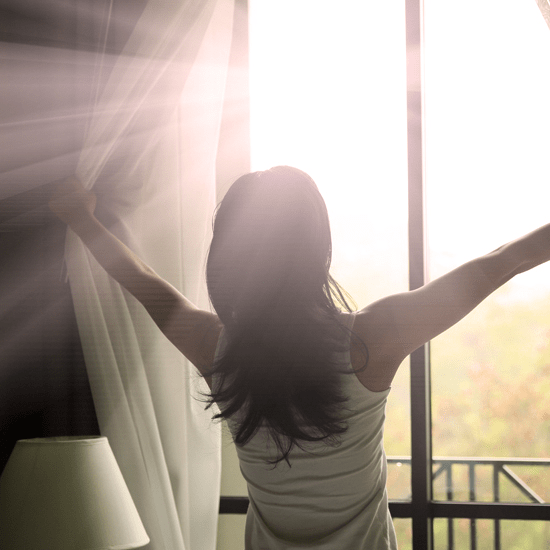
More than one in four of us has trouble falling asleep or staying asleep most nights and more than two-thirds struggle with sleep at least once a week.
That’s a lot of tossing and turning and groggy mornings for millions and billions spent – an estimated $50 billion – on sleep aids and remedies each year.
The fact is a good night’s sleep is as crucial to our wellbeing as a healthy diet and regular exercise. Lack of sleep can cause weight gain and increased risk of disease, as well as negatively impact our hormone levels and brain function.
Here are a few surefire ways to help you sleep better:
Let there be light: Exposure to sunlight or bright light during the day can improve the quality and duration of your sleep. In fact, one study found that two hours of exposure to bright light during the day upped the amount of sleep in study participants by two hours.
Cut the caffeine: Many of us need our coffee fix to get us through the say – and caffeine has been shown to have positive effects on our energy and focus – but coffee too close to bedtime isn’t a good idea. Studies suggest that caffeine can stay elevated in our blood for up to 8 hours, negatively impacting our quality of sleep. If you’re having trouble sleeping, avoid coffee after 3 pm or switch to decaf.
Cut the alcohol too: Moderate to heavy drinking can increase symptoms of sleep apnea and snoring and disrupt natural sleep patterns. It also appears to interfere with our body’s natural melatonin production.
Melatonin might help: While the usefulness of many sleep aids is questionable, melatonin supplements do seem to provide relief. One to five milligrams of this natural sleep hormone seem to help people fall asleep faster, improve sleep quality and boost energy the next day.
Too hot? Too cold? Just right: Your bedroom’s temperature can have a big impact on your ability to sleep comfortably. In fact, one study found the ambient temperature around you in bed can impact your sleep quality more than noise. Try dropping your home’s temperature a few degrees at night – it may help you sleep better and save you on energy costs too! [it would be the reverse in summer or warmer climates]
Click here for more useful ways to fall asleep and stay asleep. What’s your surefire way to get a good night’s rest? Please share your fixes with the Shop Talk blog community forum.

Did you know: Could it be apnea
If you’re constantly waking at night, getting up to pee or waking with headaches, you may have sleep apnea, a potentially dangerous condition that causes interrupted breathing. Speak to your family doctor. (Source)

Very interesting.
Melatonin does seem to help sometimes.
My husband has sleep apnea but I just have problems getting to sleep.
i have tried all these things. melatonin wont make me fall asleep, but when i do i sleep good, but , if i wake during the night, i cant go back to sleep.
i think getting old and running out of hormones cause this.
Go to sleep with tv and then automatic shutoff after asleep